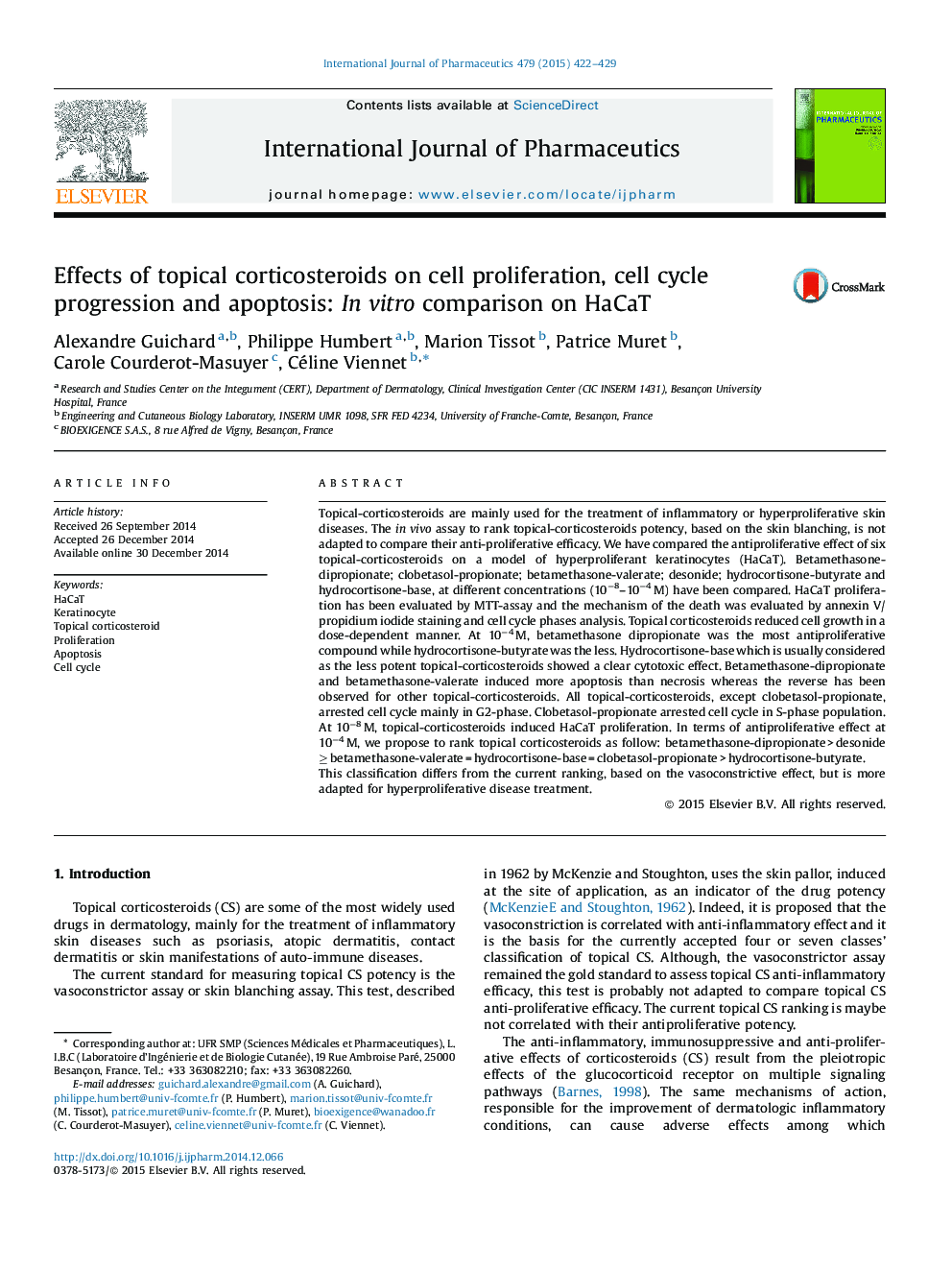| Article ID | Journal | Published Year | Pages | File Type |
|---|---|---|---|---|
| 5819023 | International Journal of Pharmaceutics | 2015 | 8 Pages |
Topical-corticosteroids are mainly used for the treatment of inflammatory or hyperproliferative skin diseases. The in vivo assay to rank topical-corticosteroids potency, based on the skin blanching, is not adapted to compare their anti-proliferative efficacy. We have compared the antiproliferative effect of six topical-corticosteroids on a model of hyperproliferant keratinocytes (HaCaT). Betamethasone-dipropionate; clobetasol-propionate; betamethasone-valerate; desonide; hydrocortisone-butyrate and hydrocortisone-base, at different concentrations (10â8-10â4 M) have been compared. HaCaT proliferation has been evaluated by MTT-assay and the mechanism of the death was evaluated by annexin V/propidium iodide staining and cell cycle phases analysis. Topical corticosteroids reduced cell growth in a dose-dependent manner. At 10â4 M, betamethasone dipropionate was the most antiproliferative compound while hydrocortisone-butyrate was the less. Hydrocortisone-base which is usually considered as the less potent topical-corticosteroids showed a clear cytotoxic effect. Betamethasone-dipropionate and betamethasone-valerate induced more apoptosis than necrosis whereas the reverse has been observed for other topical-corticosteroids. All topical-corticosteroids, except clobetasol-propionate, arrested cell cycle mainly in G2-phase. Clobetasol-propionate arrested cell cycle in S-phase population. At 10â8 M, topical-corticosteroids induced HaCaT proliferation. In terms of antiproliferative effect at 10â4 M, we propose to rank topical corticosteroids as follow: betamethasone-dipropionate > desonide â¥Â betamethasone-valerate = hydrocortisone-base = clobetasol-propionate > hydrocortisone-butyrate. This classification differs from the current ranking, based on the vasoconstrictive effect, but is more adapted for hyperproliferative disease treatment.
Graphical abstractDownload high-res image (118KB)Download full-size image
